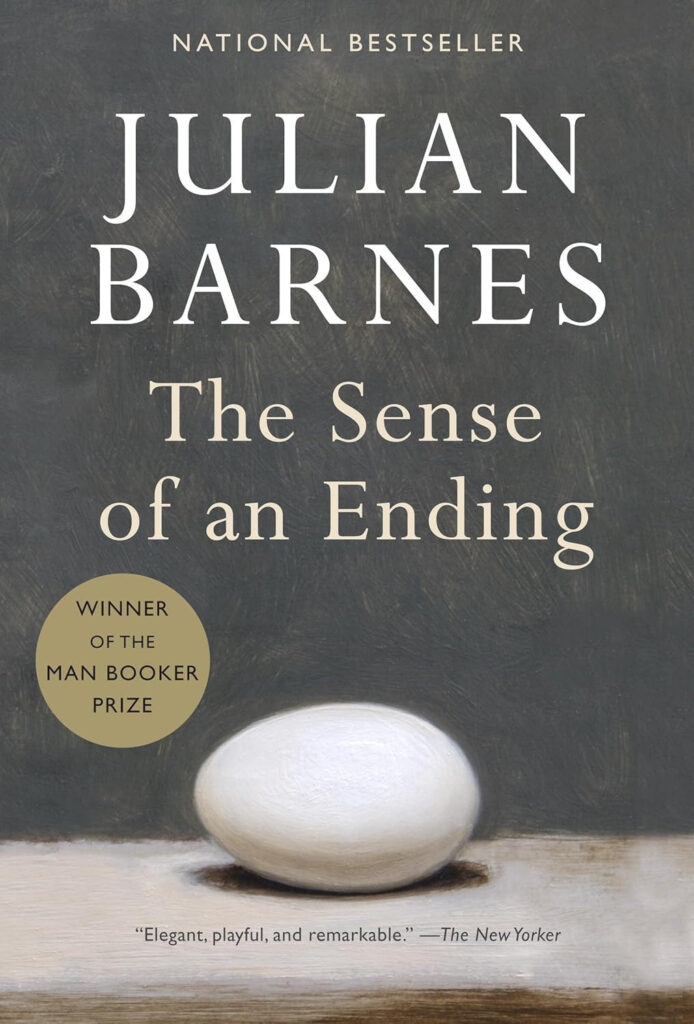 Julian Barnes’ The Sense of an Ending is a compelling work of contemporary fiction that diverges distinctly from classic literature by exploring profoundly modern themes through an introspective, fluid narrative style. Unlike the structured plots and overt moral lessons characteristic of many classic works, Barnes’ novel delves deep into the complexities of memory, perception, and time, creating a story that feels deeply personal and unmistakably contemporary.
Julian Barnes’ The Sense of an Ending is a compelling work of contemporary fiction that diverges distinctly from classic literature by exploring profoundly modern themes through an introspective, fluid narrative style. Unlike the structured plots and overt moral lessons characteristic of many classic works, Barnes’ novel delves deep into the complexities of memory, perception, and time, creating a story that feels deeply personal and unmistakably contemporary.
The novel intricately examines the unreliability of memory and the fluidity of time, portraying how past events echo through present consciousness, shaping identity and truth. Barnes artfully addresses the human tendency to reconstruct memories to fit our preferred narratives, thus questioning the reliability of our perceptions.
This thematic exploration is reminiscent of classic existential texts such as Marcel Proust’s In Search of Lost Time, yet Barnes sets himself apart through his distinctly modern emphasis on ambiguity and subjective truth. The way Barnes handles time – fluidly weaving past and present without strict linear progression – captures the fragmented nature of modern life, providing a stark contrast to the ordered linearity found in many classic narratives.
The novel revolves around Tony Webster, an ostensibly ordinary retiree whose calm life is disrupted by a mysterious legacy left to him by a woman he barely remembers. This unexpected event forces Tony to reexamine memories of his youth, particularly his relationships with his friends and a former girlfriend, Veronica. As Tony revisits these memories, unsettling truths emerge, leading to a startling revelation that challenges both Tony’s and the reader’s understanding of the events described. Without revealing too much, the twist masterfully showcases Barnes’ skill in capturing the intricacies of human relationships and the inherent unpredictability of life.
Barnes’ style is crisp, reflective, and conversational, distinctly different from the ornate, elaborate prose often associated with classical literature. His language resonates with emotional clarity and insightfulness: “History is that certainty produced at the point where the imperfections of memory meet the inadequacies of documentation.” Such precision and conciseness highlight Barnes’ contemporary approach – markedly different from the sprawling, detailed prose characteristic of classics like Tolstoy’s Anna Karenina or Dickens’ Great Expectations. Where classic authors often constructed expansive social canvases, Barnes narrows his focus sharply, honing in on individual psychology and the profound internal dynamics of memory and self-deception.
Compositionally, Barnes employs brevity and focused introspection, which contrasts starkly with the sweeping narratives and extensive character casts of classical novels. The novel’s structure, concise yet profoundly impactful, mirrors contemporary literature’s preference for brevity and economy of language. Barnes’ narrative voice is self-aware, contemplative, and deeply personal, capturing the contemporary sensibility that values authenticity and emotional resonance over grandeur and formality.
It is highly recommended for readers intrigued by the complexities of human memory, identity, and time. Those who appreciated Kazuo Ishiguro’s The Remains of the Day or Ian McEwan’s Atonement will find Barnes’ exploration similarly introspective and deeply moving. His work aligns with the existential meditations found in Camus’ The Stranger, though Barnes’ narrative possesses a uniquely contemporary resonance by portraying existential themes through the lens of everyday personal experiences rather than grand philosophical allegories.
Ultimately, Julian Barnes’ The Sense of an Ending is a powerful meditation on memory, regret, and the elusive nature of truth, illustrating how the past constantly reshapes itself within the present. Its ability to provoke introspection and challenge perceptions makes it a vital, engaging read, firmly establishing Barnes as a significant voice in contemporary literature. As the narrator aptly reflects: “We live in time – it holds us and molds us – but I’ve never felt I understood it very well.” This line encapsulates the novel’s exploration of time, memory, and self-awareness, resonating profoundly with contemporary readers navigating their own complex relationships with the past.
Available At


















Leave A Comment